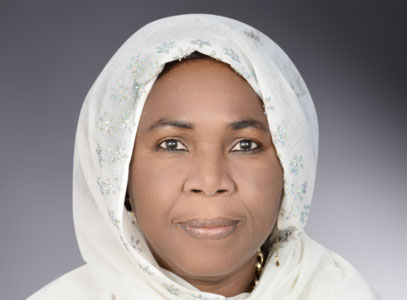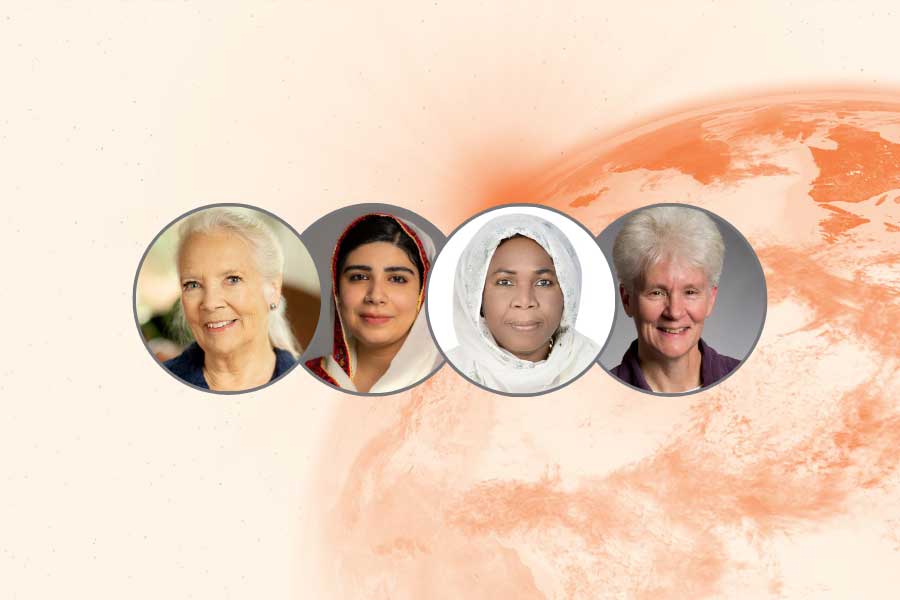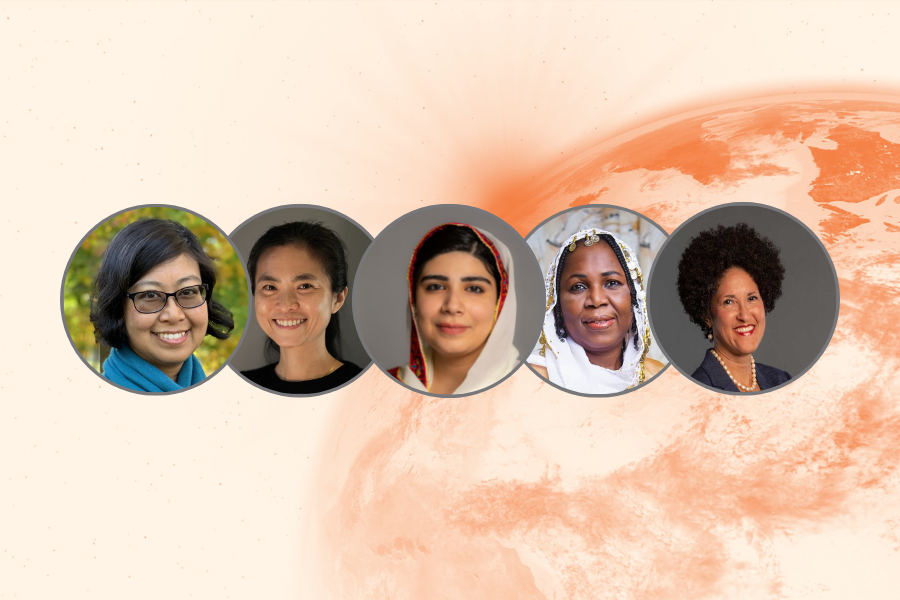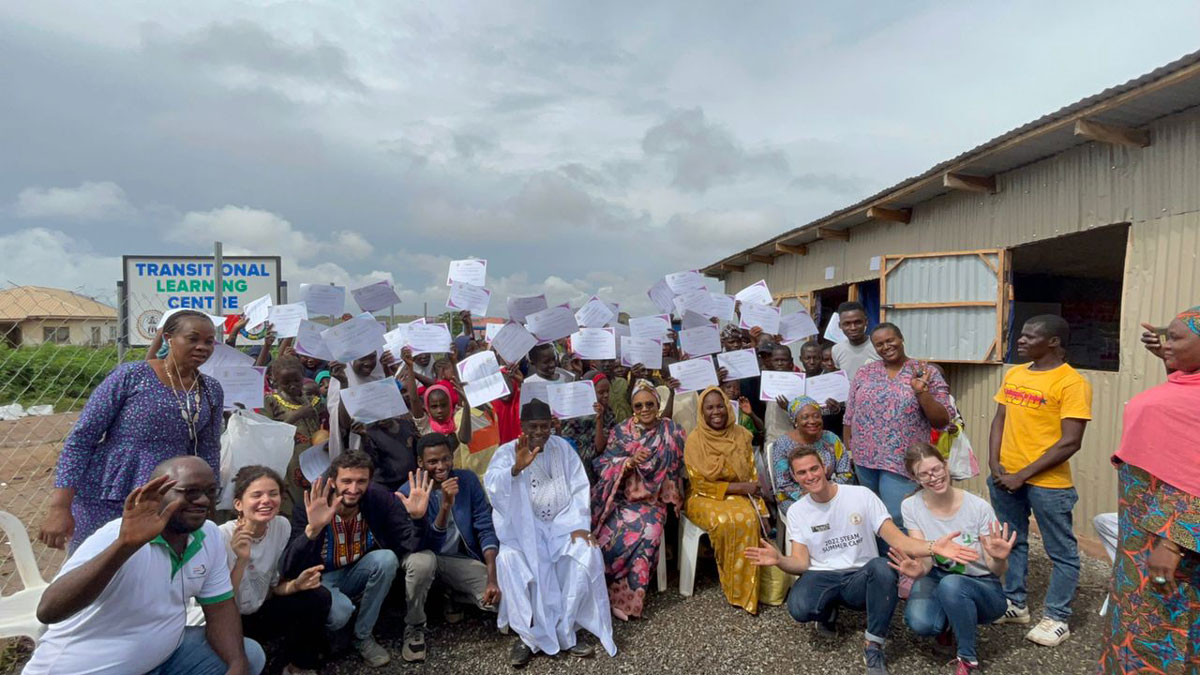
Hauwa Ibrahim
Senior International Scholar-in-Residence
- J.D.; S.J.D.; M.L., American University’s Washington College of Law; MSt, Women’s Studies, University of Oxford
Hauwa Ibrahim is a Senior International Scholar-in-Residence at the Wellesley Centers for Women. She is an international human rights and Shariah law attorney with significant academic and government experience. She is currently researching and working on “Mothers Without Borders: The Phenomenology of Mothers’ Soft Power in Building Peace” with groups of women across dozens of countries in the Middle East, Europe, Asia, the Americas, and Africa, while building bridges of cooperation between mothers in different regions and developing collaborations between religious and non-religious communities where extremism has become an issue.
Ibrahim is also the founder of the Peace Institute. One of her current initiatives—science, technology, engineering, arts, and mathematics (STEAM) summer camps—uses STEM kits to teach students basic scientific knowledge primarily using local materials. Bolstered by the success of the STEAM summer camps in dozens of Nigerian communities, reaching over 5,000 pupils since 2019, this initiative is expanding to more communities in Nigeria and Liberia and to other African nations as well. The long-term goal is to positively impact STEAM education in Africa by creating culturally appropriate curriculum incorporating all aspects of STEAM, using locally-derived items. Since the schools belong to the communities, the projects encourage the ownership of the STEAM curriculum by the schools and communities.
A career as a lawyer was not supposed to figure in Ibrahim’s destiny. What she was supposed to do was get married at the age of 12 and end her studies at the primary school level. She refused this destiny. She is acutely aware of the importance of education in the empowerment of women and as a defense for those facing the greatest deprivation. Poverty and illiteracy go hand in hand—and fundamentalism feeds on ignorance. Ibrahim, who was brought up as a Muslim herself, works tirelessly to fight against religious fundamentalism. Her work took her into the rural hinterland, where sometimes she had to travel by camel or donkey to get to the villages. She describes this time as among the best of her life, because she was able to relate to the grassroots that she came from.
Prior to joining the Harvard Divinity School as a Research Associate and Visiting Lecturer (2010-2013), Ibrahim was a jointly appointed Fellow at the Radcliffe Institute for Advanced Study at Harvard University, Harvard Law School’s Human Rights Program, and Harvard Law School’s Islamic Legal Studies Program. A lawyer, author, and mother, she has built up a unique practice, representing in Shariah courts women and children condemned to death by stoning or to limb amputation for offenses like adultery and theft.
Ibrahim has defended over 150 cases pro bono, helping to save the lives of numerous women, including the internationally known cases of Amina Lawal, Safiya Hussaini, and Hafsatu Abubakar. In May 2014, the President of Nigeria, Goodluck Jonathan, appointed her to serve on the Presidential Committee charged with fact-finding to help rescue the 219 girls kidnapped by Boko Haram from Chibok, Northern Nigeria. In 2015, she spent the year in the Hashemite Kingdom of Jordan at the invitation of His Royal Highness Prince Hassan Bin Talal to work on issues of social justice, where she encountered and worked with women tackling issues around ISIS (Da’ash). She also spent time as International Consultant for Human Rights Lawyer-in-Residence in Dushanbe, Tajikistan.
Ibrahim is an Envoy for the European Parliament (EU initiatives on girl child education), a member of the Council of Human Rights of the International Bar Association, has been a visiting professor in over a dozen countries, and is a sought-after speaker on human rights, especially related to gender, justice, and interfaith dialogue. In 2005, she was honored with the European Parliament Sakharov Prize for Freedom of Thought.
In August 2012, Ibrahim published her book, Practicing Shariah Law: Seven Strategies for Achieving Justice in Shariah Courts. The book provides real-world insights into the intricacies of Shariah law. She has since published four additional books.




